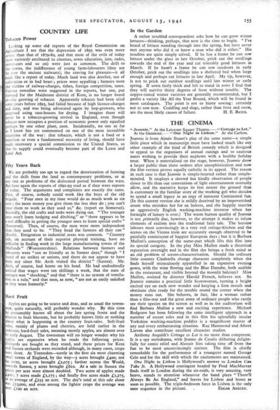Fifty Years Back
We are probably too apt to regard the deterioration of farming and the drift from the land as contemporary problems, or at ny rate as problems of the dislocated period between the wars.
ut here again the reports of 1892-93 read as if they were -reports today. The arguments and complaints are exactly the same. First, of course, nobody could work like the boys of the old brigade. " Four men in my time would do as much work as six ow ; the more money you give them the less they do ; you can't trust them to work as they used to," &c. (report on Somerset). Secondly, the old crafts and tasks were dying out. " The younger nes won't learn hedging and ditching," or " there appears to be real difficulty in getting the younger ones to learn special crafts " Somerset). Then, of course, the men were more independent than they used to be. " They head the farmers all they can " Essek).. Emigration to industrial areas was common. "Country lads, on account of their superior physical training, have no difficulty in finding work in the large manufacturing towns of the Midlands " (Worcestershire). Relations between farmers and abourers were " not so friendly as in former days," though " I heard of no strikes or unions, and there do not appear to have been any since Mr. Arch visited the district" (Sussex). Mr. rch, of course, had horns on his head. He had undoubtedly oticed that wages were ten shillings a week, that the state of ottages was " shocking," and that " there is no system of ventila- on as a rule," and that men, as now, " are not as easily satisfied s they were formerly."


























 Previous page
Previous page